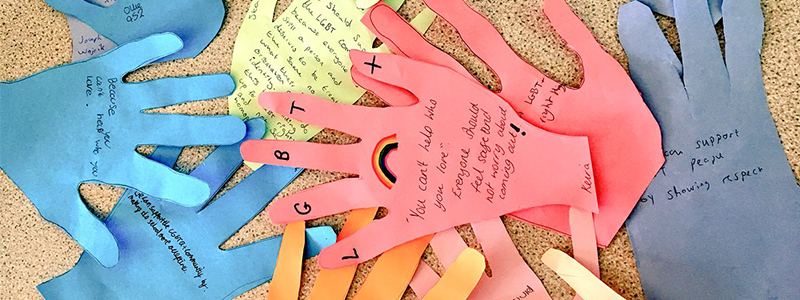
You might not suspect it, given the recent controversy around teaching LGBT+ issues at Parkfield School in Birmingham, but working in LGBT+ education brings me joy every day. Our approach at Just Like Us is positive, celebratory and affirmative, and I never stop meeting people determined to make this difference to their school communities.
But it’s no surprise, really. Ninety-four per cent of teachers and parents (recently surveyed by Professor Jonathan Glazzard and Samuel Stones) felt that it was important that schools teach children about LGBT+ identities, and the same percentage felt that schools had a responsibility to promote LGBT+ inclusion. Seventy-six per cent agreed that schools should teach children about different kinds of relationships from the age of four. That’s the kind of consensus politicians can only dream of.
We lose nothing and gain everything from creating inclusive, accepting environments for all pupils. This approach appears to be broadly supported by home and school. Why, then, are the indicators for LGBT+ young people in education still so much worse? Forty-four per cent have thought about suicide, in comparison with 26% of non-LGBT+ people. Sixty-one percent of young LGBT+ people have self-harmed (in comparison to around 10% of non-LGBT+ young people by NHS estimates). This rises to a horrifying 84% among young trans people.
LGBT+ young people are – as our founder and CEO Tim Ramsey recently put it in his TEDx talk – “born an island”. They are rarely, if ever, brought up in their minority community: 999/1000 children are born into opposite-sex families, but up to 1/10 will grow up to have same-sex experiences, and the number of people identifying as LGBT+ increases with each generation.
These young people need more than tacit support. Quiet acceptance from allies is no good: why would a young LGBT+ person take a risk being open where there’s a chance of rejection? Supporters, role models and allies are needed everywhere, in every school. By creating a national week of action – School Diversity Week (1-5 July) – Just Like Us has made it easy for your school or college to nail their (rainbow) colours to the mast. In 2019, we’re working with over a thousand schools who have removed the barriers to inaction and have signed up to take part.
Just Like Us produces a free toolkit to help you plan an activity in the week. This kit includes lesson plans, resources, guides and templates that make it easy to incorporate LGBT+ themes into your lessons and enable you to participate in the way most appropriate to your school. This year, our toolkit contains a full lesson and related activity for each KS3 subject, with suggestions for differentiating for higher and lower key stages.
When it comes to whole-school events, why not get your students on the case? Your leadership team – or LGBT+ group, if you have one – can support with planning and organisation. They could put together anything, from a cake sale or drama performance, to a non-uniform day or workshop. The week offers an effective way to focus school efforts on tackling homophobic, biphobic and transphobic bullying, involve all teachers and subjects in championing LGBT+ issues, and reinforce a positive whole-school culture.
Teachers and pupils repeatedly tell us about the impact the week has had on their community. As a deputy head from London said, School Diversity Week “has led to a much more supportive and cohesive student body where all our students feel safe and happy.” From Ofsted: the week “demonstrates leaders’ commitment to raising pupils’ awareness and enhancing their personal development and welfare, including their tolerance and respect for others.”
For the sake of young people waiting to be celebrated: what’s stopping you? Sign up and let us know what you’re planning today.
School Diversity Week begins July 1, and SSAT has got a week filled with events to celebrate and educate.
Find out which events would be best suited for you or your school here.
